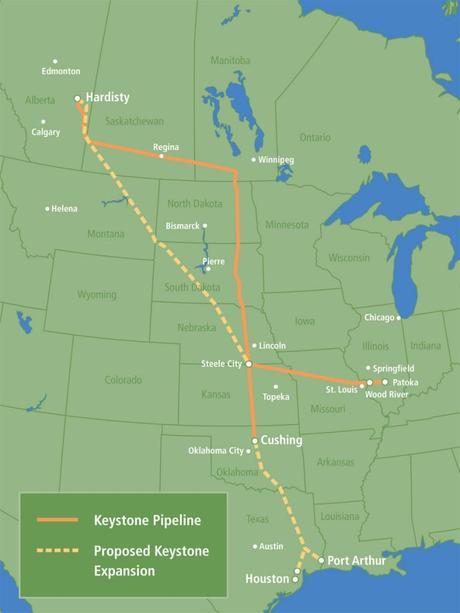 Though perhaps a minority voice among the environmental set, I agree whole-heartedly with Joe Nocera’s column about how U.S. politics is interfering with U.S. national interests.
Though perhaps a minority voice among the environmental set, I agree whole-heartedly with Joe Nocera’s column about how U.S. politics is interfering with U.S. national interests.
Along with the incredible boom in natural gas production over the last several years in the United States, North America has been the place for booming oil sands production, with our neighbor to the north now ranked number 3 in the world in oil reserves. There are environmental impacts and risks in extracting both of these resources. However, not taking advantage of these local energy sources would be foolish.
Consider the ramifications of importing oil and natural gas from abroad. Extraction has to often be done in unfriendly countries or countries that don’t have the same environmental regulations, safeguards, and oversight in place as the U.S. and Canada. The fuel also has to be shipped across the world, causing pollution and using enormous amounts of fuel and energy just to bring the resources across the oceans to our shores. This says nothing of the political risks – that we are all too well aware of – in needing to keep countries from Venezuela to Nigeria to Iraq politically stable so that our supply of fuel is not disrupted. Vital sea lanes, or oil transit chokepoints, from the Persian Gulf to the Malacca Strait are also constantly patrolled by U.S. vessels in order to keep these supply routes free of pirates and unilateral disruptions caused by countries such as Iran. 14 million barrels per day, or a quarter of all oil carried by sea, passes through the Malacca Strait alone. Most of that goes to China and other countries in Asia and as long as the U.S. remains a superpower, it will be needed to patrol these sea lanes for the sake of world-wide stability. However, the point is to reduce the direct impact on the U.S. from events happening in far-off lands.
9 years of war in Iraq and decades of various entanglements overseas caused mainly or in part by our reliance on foreign oil should have taught us to reduce that dependence where and when we can. Well, we now have the chance.
While total energy independence is still an ideal not to be reached in the near future, the potential to bring in oil from our friendly Canadian neighbors is really a no-brainer. Canada will sell it to someone, and Prime Minister Harper was just in China to talk about exactly that. Would you rather have that oil be transported (causing pollution) half way around the world to a country that has less stringent environmental regulations and is an economic rival? Or extend and expand the pipeline infrastructure already in place to bring oil to our refineries here at home? Would you rather read about how rebels in Nigeria and Iraq have blown up another pipeline that carries oil eventually destined for U.S. cars and trucks, or see an article about the jobs created in a politically stable, human rights protecting Canada?
We will not be able to insulate ourselves from the whims of world oil market price fluctuations or the political ramifications of rogue countries and rebellious factions, no matter whether the Keystone Pipeline gets built or not. We also have to continue to move toward a future renewable energy based economy that is truly necessary for long-term sustainability. But, as the Prius is a bridge from the combustion engine to all-electric, natural gas, or other alternative fuel vehicles, the resources in North America should be a bridge to lead us toward an energy future less reliant on petrol dictators and energy sources from abroad. From an environmental and foreign policy angle, it just makes sense.
[Image]

